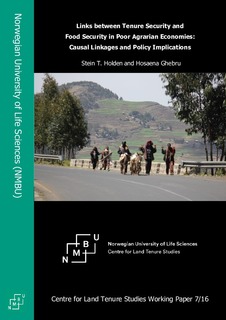Use and trade of bushmeat in Colombia: Relevance to rural livelihoods
Uso y comercio de carne de monte en Colombia: Importancia para los medios de vida de las comunidades rurales
Manejo comunitario de la cacería y de la fauna: Avances realizados por la asociación de cazadores airumaküchi en Puerto Nariño, Amazonas Colombia
China's conversion of cropland to forest program: a systematic review of the environmental and socioeconomic effects
Groundwater evaporation ponds: a viable option for the management of shallow saline waterlogged areas
The province of Punjab is the main food basket of India. In recent years, many regions of Punjab are facing acute waterlogging problems and increased secondary salinity, which have negative impacts on food security of the nation. In particular, these problems are more pronounced in the Muktsar district of Punjab. The observed groundwater levels trend between 2005 and 2011 implies that groundwater levels are coming towards the land surface at the rate of 0.5 m/year in Lambi and Malout blocks.
Fragmented Territories: Incomplete Enclosures and Agrarian Change on the Agricultural Frontier of Samlaut District, North-West Cambodia
In Cambodia, the interactions between large-scale land investment and land titling gathered particular momentum in 2012–13, when the government initiated an unprecedented upland land titling programme in an attempt to address land tenure insecurity where large-scale land investment overlaps with land appropriated by peasants.
Inter- and intra-farm land fragmentation in Viet Nam
This paper uses panel data at commune, household, and plot levels to study the causes and effects of agricultural land fragmentation in rural Viet Nam. We focus on both inter-farm fragmentation (the division of land into many small farms) and intra-farm fragmentation (the division of each farm into many small plots). In both these dimensions, land holdings in Viet Nam are highly fragmented. Results show strong effects of both inter- and intra-farm fragmentation on labour input per hectare in agriculture.
Land Confiscations and Collective Action in Myanmar’s Dawei Special Economic Zone Area: Implications for Rural Democratization
The recent political and economic liberalization in Burma/Myanmar, while indicative of some positive steps toward democratization after decades of authoritarian rule, has simultaneously increased foreign and domestic investments and geared the economy toward industrialization and large-scale agriculture.
Linking Food and Land Tenure Security in the Lao PDR
ABSTRACTED FROM INTRODUCTION: This report explores the relationships between land tenure security and food security in Laos, with comparison to other developing countries. The purpose of the study is to better understand these linkages in order to recommend pathways for policies and projects to improve food insecurity by increasing rural poor people's access and tenure security to land.
Links between tenure security and food security in poor agrarian economies : causal linkages and policy implications
Population growth leads to growing land scarcity and landlessness in poor agrarian economies. Many of these also face severe climate risks that may increase in the future. Tenure security is important for food security in such countries and at the same time threatened by social instability that further accelerate rural-urban and international migration. Provision of secure property rights with low-cost methods that create investment incentives can lead to land use intensification and improved food security.
Agricultural Productivity in Africa.Trends, Patterns, and Determinants
The publication presents updated and new analyses of land, labor, and total productivity trends in African agriculture. It brings together analyses of a unique mix of data sources and evaluations of public policies and development projects to recommend ways to increase agricultural productivity in Africa.




